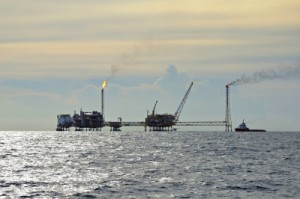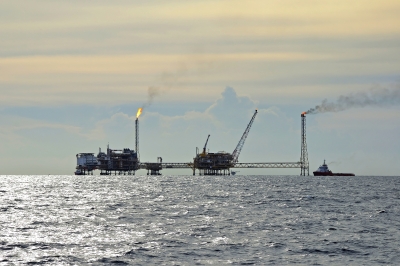 The Philippine Department of Finance (DOF) will soon implement a system of port accreditation for commodities at high risk of smuggling, such as oil and steel, in a bid to curb nonpayment of import duties and taxes on those goods.
The Philippine Department of Finance (DOF) will soon implement a system of port accreditation for commodities at high risk of smuggling, such as oil and steel, in a bid to curb nonpayment of import duties and taxes on those goods.
Philippine Customs Commissioner Rufino Biazon was quoted as saying the port accreditation scheme could be in place this year.
The plan, which involves assigning particular ports to handle imports of high-risk commodities, comes amid calls to revamp the Bureau of Customs (BOC) over its alleged failure to curb petroleum smuggling estimated to cost the government some P30 billion to P40 billion in unpaid import duties each year.
Ports that will be accredited as entry points for imports of sensitive commodities will be subject to standards and technical requirements, the DOF said in a press release. They will be required to submit to the DOF monthly reports that will be cross-checked with data from the Department of Energy and the Philippine Ports Authority on a per volume and per vessel basis, the DOF said.
“The port accreditation system will prevent ‘port shopping’ and hinder unethical importers from literally evading tax collection,” Finance Secretary Cesar Purisima was quoted as saying.
Purisima said that based on data from the Department of Energy (DOE), Philippine oil demand amounted to 106.9 million barrels in 2011 but figures collated by the BOC show only 67.6 million barrels of oil were imported in the same year — a discrepancy of 39.3 million barrels, which could have come into the market through smuggling.
Data from the National Statistics Office (NSO) show that in January, imports of mineral fuels, lubricants, and related materials showed the highest negative performance among the top 10 imports, dropping in value by 19.6% from the previous year. The NSO said there was also a drop in the volume of shipments of the products in January.
Under the new system, all importers of sensitive commodities will be asked to submit annual rolling import plans indicating the quantity, type, source, and the location of the intended arrival port.
The port accreditation is part of a joint campaign being undertaken by the finance department, the BOC and Bureau of Internal Revenue to curb oil smuggling and bring smugglers to justice, the DOF said.
The DOF and its attached agencies have visited major district ports in the country to gather imports data from them. Initially visited between February 5 and March 15 were major oil-importing ports such as the Port of Limay. The second wave of visits that will begin this month will cover the Manila International Container Port, the Port of Manila, NAIA, and the Port of Batangas, another major oil importer.
Nine cases have been filed against oil smugglers since the start of the Aquino administration, with total dutiable value of products amounting to P37.97 billion , the DOF said.
The oil smuggling issue has sparked calls for Malacañang to fire Customs Commissioner Biazon and revamp the bureau.
Sen. Francis Escudero was quoted as saying it was unlikely that billions of pesos worth of fuel could enter the country’s ports undetected by customs officials. He called for “top-to-bottom changes” in the BOC and invoked the lateral attrition law that provided for penalties for government officials who fail to perform their duties.
But presidential spokesperson Edwin Lacierda said he saw no reason to replace Biazon at this point. “If there is evidence, and there are reports, we eventually conduct an investigation. In the BOC, Commissioner Biazon is color-blind to whether you’re a big player or small player. If you’re involved in smuggling, we will investigate you,” Lacierda said at a briefing.
Asked if Biazon continued to enjoy the trust and confidence of President Aquino, Lacierda said: “For now, of course, yes. Yes.”
Petron Corp. chair and CEO Ramon S. Ang has said that one in every three liters of fuel sold in the country has been smuggled in, causing the country anywhere between P30 billion and P40 billion in lost revenues yearly.
Shell country manager Edgar Chua said the volume and value of oil products coming in could be understated resulting in smaller tax payments. One more scheme, he added, was of a tanker out at sea filling smaller vessels that would deliver smuggled fuel directly to small storage facilities.
Chevron Philippines Inc., one of the three biggest oil players in the country, is urging the government to implement a more rigorous enforcement process to fully collect taxes from the importation of refined petroleum products. This move will not only shore up national government coffers but also create a better business environment wherein companies will enjoy a level playing field, it said in a statement.
The DOE, the oil firm added, must also be given police powers to give it more teeth to enforce the rules. Such police powers may include the ability to padlock or impose significant penalties on errant retail outlets that sell fuel that do not meet the Philippine national standards or retail outlets which do not issue valid receipts.
“While the country is currently enjoying very good economic prospects, the Philippines is missing out on vital foreign direct investments because there is limited confidence that the government can provide a level playing field for all industry participants,” said Pete Morris, country chair and general manager for international products of Chevron.
Image courtesy of TeddyBear(Picnic)/ FreeDigitalPhotos.net





